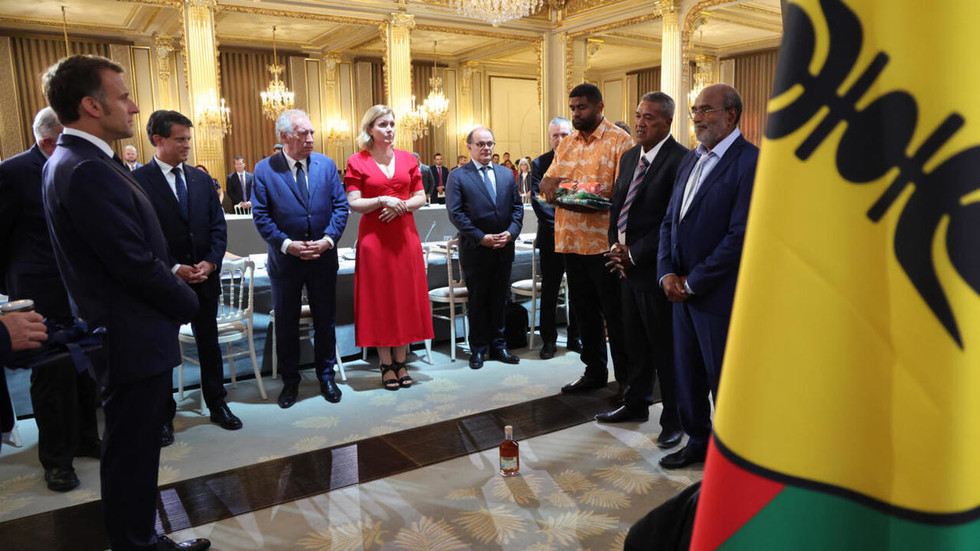 Iván Duque Márquez
Iván Duque MárquezBOGOTA, Colombia, Jun 17 (IPS) - Iván Duque Márquez is a Former President of Colombia (2018-2022)The services the ocean provides are the backbone of our collective health, wealth and food security, yet today just 2.7% of the ocean has been assessed and deemed to be effectively protected. In failing to establish adequate safeguards, not only are we condemning communities and ecosystems across the world to decline and collapse, we are also overlooking a significant economic opportunity.
By investing in protecting just 30% of the ocean globally, we stand to unlock around $85 billion per year in annual returns and avoided costs by 2050. That’s the return from three key benefits alone - preserving natural coastal defences to prevent escalating property damages; avoiding the costs of carbon emissions from seagrass loss; and reducing profit losses from declining, overexploited fisheries. These are conservative estimates - additional benefits from spillover effects on tourism, fishery yields, and job creation could raise returns even further.
 Iván Duque MárquezCurrently $15.8 billion is needed annually to meet the global target to protect 30% of the ocean by 2030. Just $1.2 billion currently flows to marine protection annually. That’s a finance gap of $14.6 billion - a miniscule fraction of what the global community funnels into defence spending every year. Why are we repeatedly missing the mark on this critical goal when it represents such an opportunity?
Iván Duque MárquezCurrently $15.8 billion is needed annually to meet the global target to protect 30% of the ocean by 2030. Just $1.2 billion currently flows to marine protection annually. That’s a finance gap of $14.6 billion - a miniscule fraction of what the global community funnels into defence spending every year. Why are we repeatedly missing the mark on this critical goal when it represents such an opportunity?This is a question of global equity and responsibility. Fewer than one-third of coastal countries have established quantified, timebound targets aligned with 30x30. Without stronger leadership from these countries, global efforts risk stalling further.
Wealthy nations can and must deliver on the pledges made in their revised National Biodiversity Strategies and Action Plans (NBSAPs) and continue to embed targets in national plans, regional action plans, and national biodiversity financing plans. Given the financial returns and ecological imperative, this should be an easy decision.
Luckily, there is no shortage of examples to learn from. There are already nations demonstrating the level of ambition needed to reach the 30x30 target, using innovative policy and finance models to secure the protection of their marine ecosystems - and empower the communities that rely on them.
In my home country of Colombia, a commitment to protect 34% of the country’s ocean areas by 2030 has already been exceeded, with 37.6% of marine areas currently under protection. This achievement reflects a whole-of-government approach, incorporating mechanisms to secure legal land ownership and ensure inclusive decision-making.
Meanwhile our neighbor Ecuador’s debt for nature swaps are generating proceeds for the protection of critically important Marine Protected Areas (MPAs) - including a newly-created trans-national MPA corridor - for a number of years to come.
To succeed in reaching the 30x30 goal, and unlocking the financial returns associated with this milestone, we will need to look beyond national borders and focus attention on the high seas - just 1.5% of which is currently protected.
The impending ratification of the High Seas Treaty - focused on the conservation and sustainable use of marine biodiversity in areas beyond national jurisdiction - is expected to catalyse action in this area, with countries already developing proposals for the first wave of high seas MPAs. This represents a generational opportunity for cooperation on global commons.
Chile is demonstrating strong leadership in this area, proposing the creation of a high seas MPA covering the international waters portion of the Salas y Gómez and Nazca ridges – a 3,000km long biodiversity hotspot and vital migratory corridor for whales, sharks, and turtles.
Chile’s plans connect existing national MPAs with proposed protections in international waters, aiming to create a continuous network of conservation areas to maintain ecological connectivity for migratory species. This is exactly the kind of multilateral coordination we need to scale.
We are at a critical juncture for ocean protection. If we act now, we can deliver long-term health, food security and economic stability for coastal communities across the globe, reaping the associated economic and environmental returns.
As a former head of government, I understand what it means to make difficult budgetary decisions. But it is clear that some investments pay back many times over - for people, for the planet, and for future generations. The time to close the ocean finance gap is now. The question is no longer whether we can afford to protect the ocean - but whether we can afford not to.
Iván Duque Márquez, the youngest elected President in Colombia’s history at the age of 41, is currently a Distinguished Fellow at the Woodrow Wilson Center, a Transformational Distinguished Fellow at Oxford University, a Distinguished Fellow at WRI, a Leadership Fellow at FIU, a Distinguished Fellow at the Bezos Earth Fund, and a member of the Campaign for Nature Global Steering Committee. He is a global expert in sustainability, conservation, green finance, and energy transition.
IPS UN Bureau
Follow @IPSNewsUNBureau
Follow IPS News UN Bureau on Instagram
© Inter Press Service (2025) — All Rights Reserved. Original source: Inter Press Service

 3 weeks ago
15
3 weeks ago
15










 English (US) ·
English (US) ·